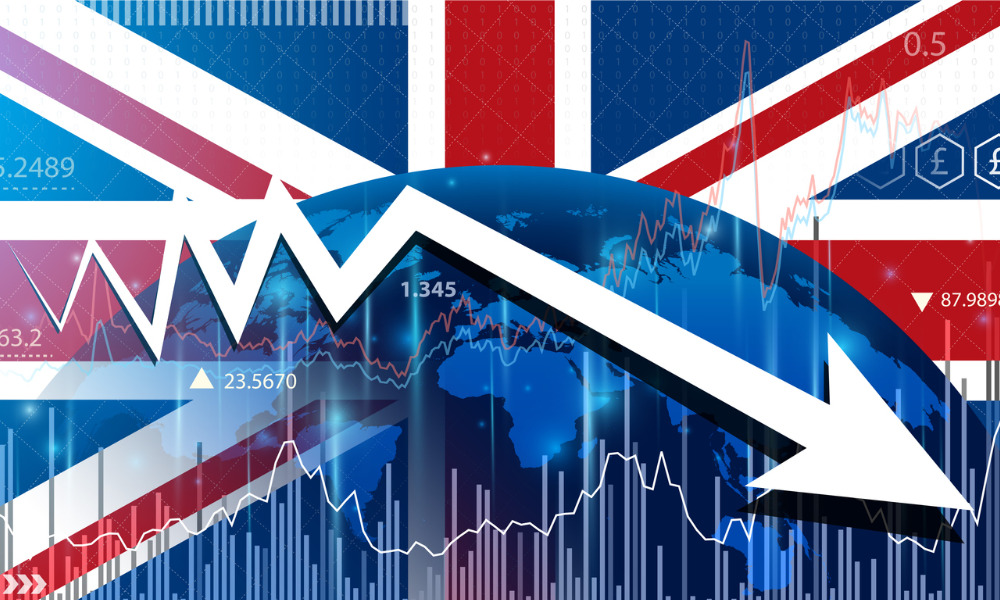Experts believe the Bank of England unlikely to veer away from hiking the base rate, however

The UK’s annual inflation rate fell further to 6.8% in July, down from 7.9% in the previous month, but some industry experts believe the Bank of England (BoE) is not yet ready to end the streak of consecutive base rate hikes.
The latest consumer price inflation (CPI) data published by the Office for National Statistics (ONS) on Wednesday also showed a 0.4% decrease in CPI on a monthly basis.
“Inflation slowed markedly for the second consecutive month, driven by falls in the price of gas and electricity as the reduction in the energy price cap came into effect,” Matthew Corder, deputy director of prices at the Office for National Statistics, commented.
“Although remaining high, food price inflation has also eased again, particularly for milk, bread, and cereal. Core inflation was unchanged in July, with the falling cost of goods offset by higher service prices.”
Annual inflation slowed again in July 2023.
— Office for National Statistics (ONS) (@ONS) August 16, 2023
▪️ Consumer Prices Index including owner occupiers’ housing costs (CPIH) rose by 6.4% in the 12 months to July 2023, down from 7.3% in June
▪️ Consumer Prices Index (CPI) rose by 6.8%, down from 7.9% in June
➡️ https://t.co/wLiGaS7wZC pic.twitter.com/XnTmQZwiFq
Ben Thompson, deputy chief executive at Mortgage Advice Bureau, said that while July’s inflation fall is a firm sign that the headline rate is moving in the right direction, salary rises have thrown up yet another conundrum for the Bank of England.
“Wages have grown at a record level to 7.8% and are now higher than current inflation at 6.8%,” Thompson pointed out. “Inflation dropping back opens the door for the BoE to press pause on rate rises, but record wage growth keeps potential hikes firmly on the table.
“Inflation being below average wage growth could mark a turning point in the cost-of-living crisis, and potentially signal good news for mortgage customers, with lenders already reducing their rates and more manageable payments becoming a reality.”
Adam Oldfield, chief revenue officer at Phoebus Software, however, believes that while inflation fell below 7% in July, the Bank of England is highly unlikely to veer away from its current path, and another base rate rise is likely to be on the horizon.
“For the housing market and mortgagers in particular, this would be another blow, especially when we are already seeing arrears increasing,” he said. “The recent rate cuts on fixed rates has given a bit of hope for some, but there seems no respite for those that now find themselves on SVRs.
“Lenders will need to be canny to meet their lending quotas in the last few months of the year as borrowers face the dilemma of whether to fix now or wait.”
Simon Webb, managing director of capital markets and finance at LiveMore, agreed with Oldfield, saying that despite the latest fall in the inflation rate, there is still a long way to go to reach the government’s 2% target.
“Core inflation is now higher than the main figure at 6.9%, which excludes the food and energy prices,” Webb noted. “Along with yesterday’s announcement of wages growing by a record 7.8% in Q2, it looks likely the next base rate decision will be another upward hike.”
For Lily Megson, policy director at My Pension Expert, the relief that falling inflation and increased wages have brought to Britons might only be temporary.
“Indeed, inflation’s persistent grip on people’s finances is not set to loosen any time soon,” she said. “The approach of just ‘waiting until inflation comes under control’ is not fit for purpose. The government must look to other areas of support to help people better understand their financial circumstances.
“Arguably, the better people feel more supported in their financial situation, the more in control they will feel of their situation – a feeling many people will value during this economically volatile period.”
Any thoughts on the latest UK inflation figures? Let us know by leaving a comment in the discussion box at the bottom of the page.



